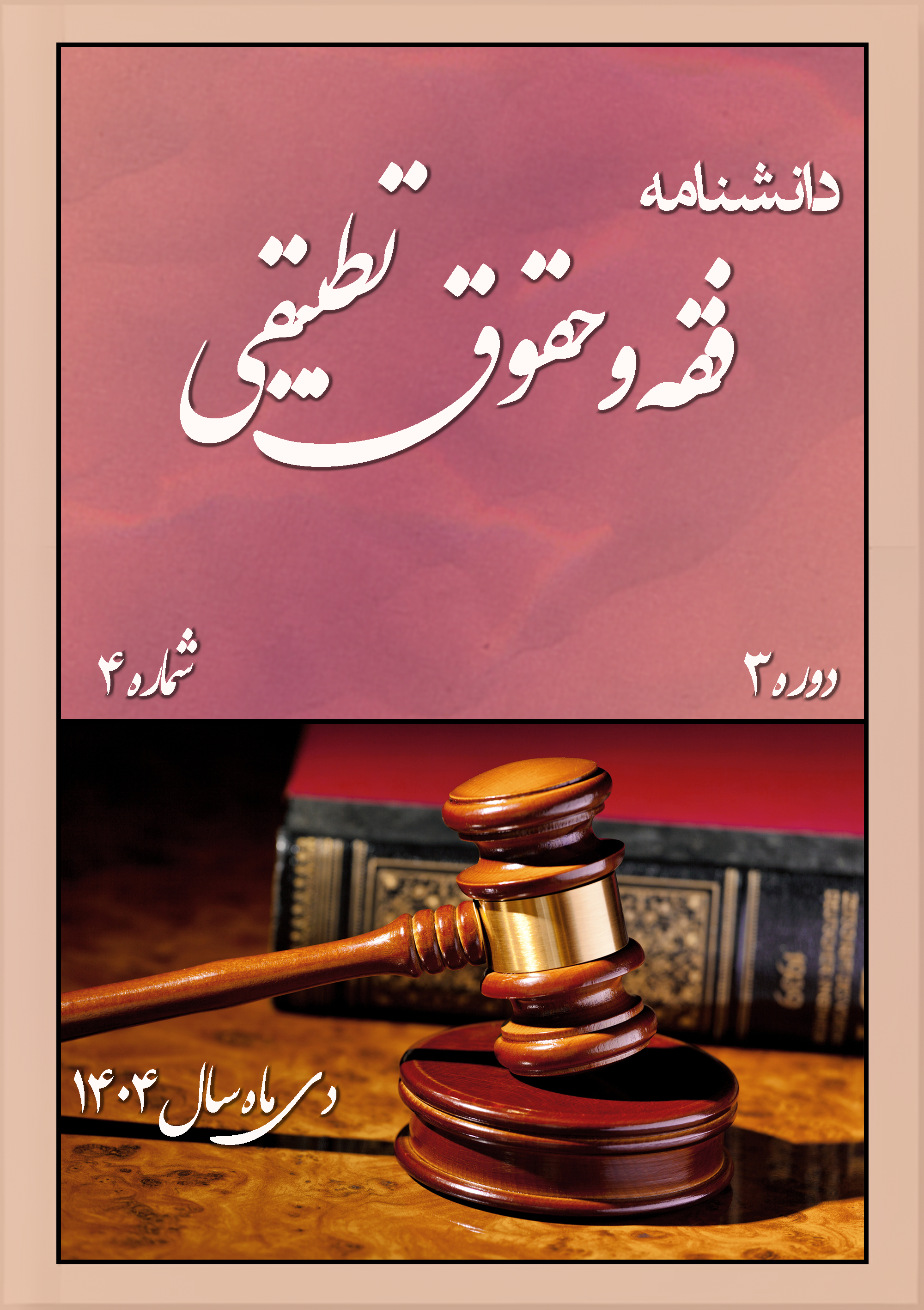Jurisprudential and Legal Foundations of Criminalizing Tax Evasion
Keywords:
Taxation, Tax Evasion, Criminalization, Khums, ZakatAbstract
Tax evasion, as one of the most significant challenges facing tax systems, exerts extensive effects on economic performance and social justice. This phenomenon not only reduces the government’s financial resources but also leads to the expansion of economic inequality and the weakening of public trust in the legal and administrative system. In Iranian law, the criminalization of tax evasion is based on the general principles of criminal law and is inspired by jurisprudential rules such as the necessity of preserving governance and Islam, safeguarding the Islamic society, and recognizing taxation as a public right. Moreover, the obligation of citizens to adhere to public order and social interests provides a firm foundation for prohibiting tax evasion. In fact, tax evasion is not merely a violation of tax regulations but constitutes harm to society and an infringement of public rights, which are generally and specifically prohibited by the Shari‘a. Alongside these principles, the prohibition of akl al-māl bi’l-bāṭil (illicit acquisition of property) and the fundamental necessity of maintaining public order are invoked to confront this phenomenon. From a jurisprudential perspective, the payment of taxes—as part of the civic obligations and as a mechanism to achieve public welfare—is endowed with a legitimate religious basis; therefore, evasion from it amounts to the infringement of public rights and the violation of social justice. From a legal standpoint as well, the legislator, by defining specific instances of tax evasion and prescribing criminal and civil sanctions, aims to protect public interests and secure the state’s financial resources. Consequently, the criminalization of this destructive phenomenon, emphasized within Islamic jurisprudence, is deemed indispensable for ensuring fiscal justice and safeguarding the proper functioning of the economic system within the Islamic community.
Downloads
References
Ansari, M. (2015). The Book of Profit, Sale, and Forbidden Transaction Options. World Congress of Sheikh Azam Ansari.
Aqili, L. (2012). Measuring the Ability to Pay Islamic Taxes in the Country's Provinces (Case Study: Zakat). Quarterly Journal of Taxation, 1(64).
Arab Mazar, A. (2001). Overcoming Major Obstacles in Attracting Taxpayers' Cooperation and Reducing Their Burden. Quarterly Journal of Taxation Research, 2(31).
Azizkhani, F., & Afshari, G. (2005). Tax Evasion and Its Impact on Gross Domestic Product and Income Distribution. Quarterly Journal of Majlis and Strategy, 1(49).
Beheshti, Y., & Royaei, R. A. (2017). Investigating the Relationship Between Individual Ethics and Attitude Towards Tax Evasion. Value and Behavioral Accounting, 1(4).
Elahi, N. (2016). Evaluating the Jurisprudence's Capabilities in Controlling the Consequences of the Increasing Trend of Tax Avoidance. Applied Jurisprudence Research Group, Islamic Civilization Research Institute.
Farhangfar, S. (2002). Economic Policies in Islam. Islamic Culture and Thought Research Institute.
Hashemi Shahroudi, S. M. (2010). Zakat Conditions: A Study of the Condition of Continuing Puberty. Ahl al-Bayt Quarterly, 1(61).
Hilli, J. i. H. (2003). Independent Reasoning and Emulation (Ascent to Principles). Āl al-Bayt Institute.
Ja'fari Langarudi, M. J. (2015). Legal Terminology. Ganj-e Danesh Library.
Laket, M., & Kouhi, A. (2006). Tax Fraud or Tax Evasion. Quarterly Journal of Taxation, 1(40).
Makarem Shirazi, N. (2019). New Inquiries. Madrasat al-Imam Ali ibn Abi Talib.
Milani, A. (2012). Tax Evasion Resulting from Iran's Informal Economy. Tax Research Journal, 1(61).
Mirmo'ezi, S. H. (2002). The Macrostructure of the Islamic Economic System. Cultural Institute of Knowledge and Contemporary Thought.
Mousavi Jahromi, Y., Tahmāsbi Boldaji, F., & Khākin. (2009). Tax Evasion in the Value Added Tax System: A Theoretical Model. Quarterly Journal of Taxation Research, 5(17).
Nourzad, M. (2010). Economic Crimes in Iranian Criminal Law. Jangal Javidaneh Publications.
Oudeh, A. (1994). Islamic Criminal Law. Astan Quds Razavi Publications.
Qomi, M. i. A. i. B. (2013). The Perfection of Religion and the Completion of Bounty. Islamic Publications Office.
Sadati, S. M., Mahdavi, M., & Hosseini, S. M. (2017). Foundations of Criminalizing Economic Crimes in Imami Jurisprudence. Studies in Criminal Law and Criminology, 4(1).
Sayyed Razi, M. i. H. (2014). Nahj al-Balagha (Peak of Eloquence). Nahj al-Balagha Institute.
Sheikh Mufid, M. i. N. (2010). The Sufficient. Islamic Publishing Institute.
Yousefi, A. A. (1990). Referendum of the Islamic Culture and Thought Research Institute from Ayatollah Mousavi Ardabili, Islamic Financial System. Islamic Culture and Thought Research Institute.
Downloads
Published
Submitted
Revised
Accepted
Issue
Section
License
Copyright (c) 2025 مهدی شیخی, اصغر عربیان, سید ابوالقاسم نقیبی (نویسنده)

This work is licensed under a Creative Commons Attribution-NonCommercial 4.0 International License.










